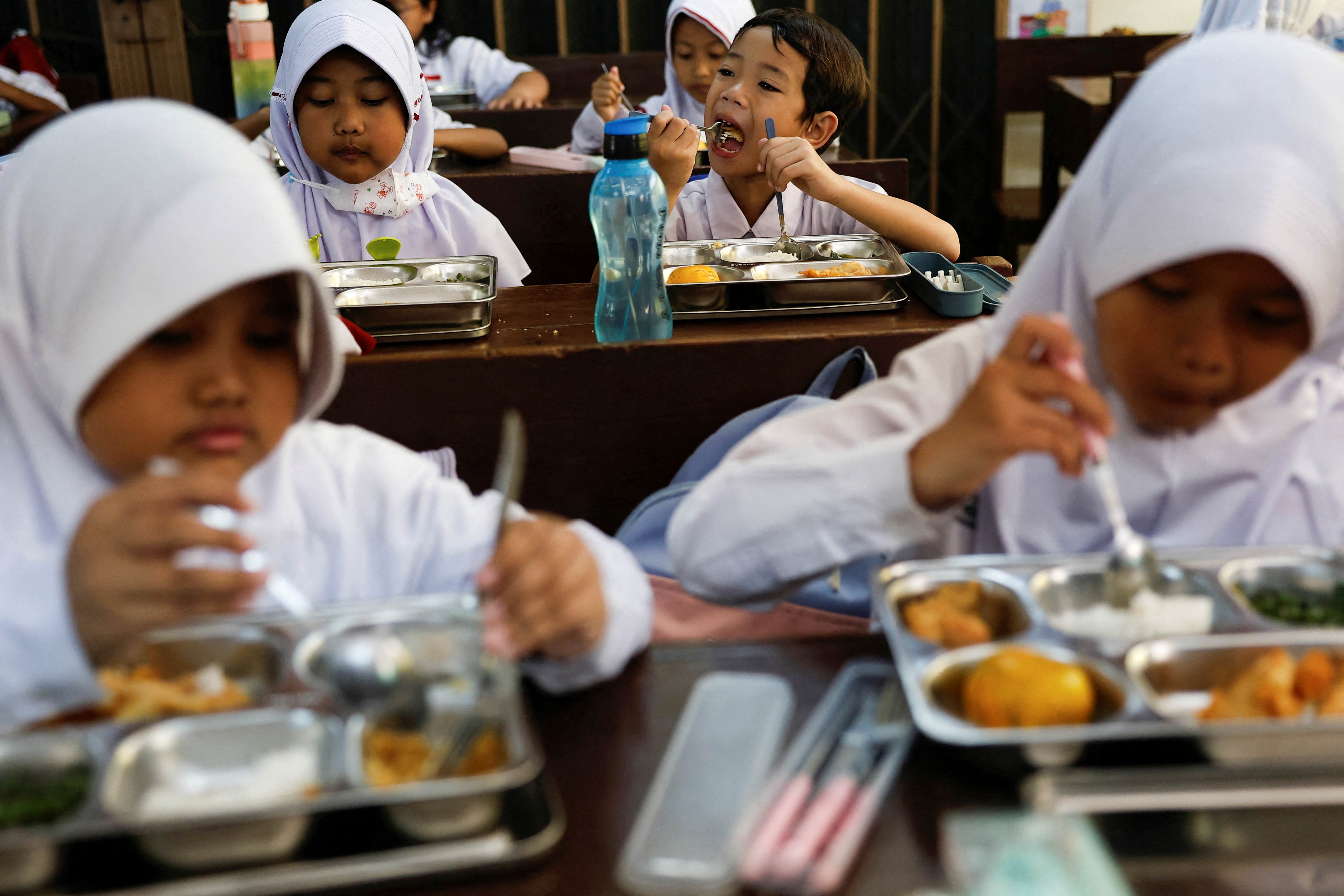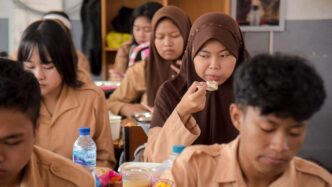Families in Indonesia whose children fell ill after eating free school meals are joining non-profit groups in demanding the suspension of a flagship government nutrition programme, after thousands of students suffered food poisoning.
More than 1,300 children in West Bandung, Java, were hospitalised last week with breathing problems, nausea, and diarrhoea, according to local reports.
The meals were part of President Prabowo Subianto’s initiative to combat child malnutrition, but the government has now shut down dozens of production kitchens.
“This programme should be stopped and replaced with cash,” said Aminah, a 50-year-old grandmother whose seven-year-old grandson became sick. “I’d rather the kids bring their own lunch.”
The rollout comes amid efforts to reduce inequality and child stunting, which affects over 20% of Indonesian children.
But nine months after the scheme launched, more than 6,400 people have fallen ill, with 70 poisoning incidents recorded. Activists believe the actual number is higher due to inadequate reporting.
Rapid programme expansion has been blamed for safety lapses. The number of kitchens grew from 1,000 in April to more than 9,600 by September, and beneficiaries rose from 3 million to 31 million.

Most poisoning incidents were linked to inexperienced kitchens, poor raw materials, unsafe water, and violations of food safety standards, according to the National Nutrition Agency (BGN).
Despite the crisis, President Prabowo defended the initiative, saying the reported food poisoning rate was just 0.00017% of meals served.
He also ordered all kitchens to conduct safety tests before distribution.
The government allocated 71 trillion rupiah ($4.2 billion) for the programme in 2025, with an additional 28 trillion rupiah requested. The goal is to reach 83 million people by the end of 2025 — four years earlier than initially planned.
However, researchers and watchdog groups are calling for an immediate suspension. “We cannot wait until there are thousands more victims,” said Ubaid Matraji of the Network for Education Watch.
Authorities have already suspended 56 kitchens linked to safety breaches as part of a broader review. “The safety of the people, especially children, is our top priority,” said Nanik S. Deyang, BGN’s deputy chair.


 Trending
Trending 













